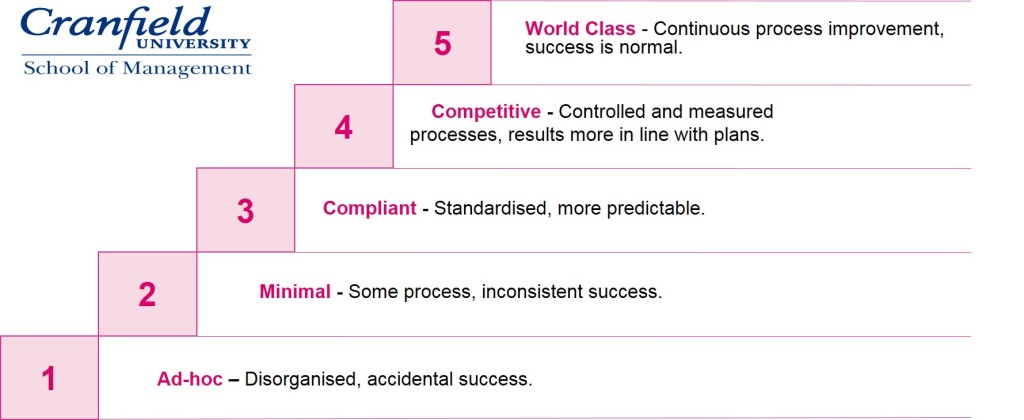Change is something that we are all experiencing more often. Any kind of project will initiate some kind of change, whether that’s a change to the way you communicate with clients to a restructure of a team. It’s important for organisations to understand how they can re-engineer their processes to make change more effective, often this is through ensuring their ‘project people’ have the support, skills and resources to be able to deliver on time, on budget and on target. In the article ‘Ready, Set, Go – Does Your Organisation Support Projects?’ we:
- Looked at how an organisation can support projects.
- Where a major organisation failed and the changes they have recognised.
- Reviewed project success factors.
Here we review some snapshots from research that supports the need for organisation to manage change:
- Modern enterprises are currently faced with unprecedented levels of change which provides a constant threat to their success and, in many cases, survival (Major Projects Authority Annual Report 2015).
- Greater ‘Maturity’ in Project and Programme Management is positively correlated to success in delivering the Organisation’s strategy and contributes to the speed of implementation and resilience to setbacks at Level 3 (Established) programme, project & PMO functions support project delivery on schedule & to budget 64% more often than their Level 1 (Immature) PMO competitors. (PWC Report Dec 2012).

- Moving from Level 1 to Level 3 is underpinned by the widespread and consistent application of Best Practice Methodology and documentation, together with appropriate Project and Programme Management training. There is often a misalignment of ‘Run the Business’ and ‘Change the Business’. Fit-for-purpose governance strongly influences project and programme success (PWC Report Dec 2012).
- To move from level 3 to Level 4 and beyond is facilitated by ‘soft skills’ development, e.g. ‘Stakeholder management’ skills, project leadership, communication skills and the ability to deal with socio-political complexity (described as “proper hard” by Dr Harvey Maylor, Dr Neil Turner and Dr Murray-Webster in their paper ‘How Hard Can It Be?).
- Project Management is ‘mission critical’ to the Government’s ability to spend Taxpayer money wisely. (“We never forget that there is no such thing as government money, only taxpayers’ money. People have worked hard to earn it so we have a duty to spend it wisely. Better project management is critical to that mission” – Major Projects Authority Annual Report 2015).
- People, tools and methodology are under-utilised but provide ‘low hanging fruit’ for improving programme and project execution through training, standardisation and automation. In low-performing organisations PM staff are much less likely to have formal PM qualifications, hands-on-experience and extensive PM knowledge. Engaged, experienced staff lead to project success (PWC Report December 2012).
Project success factors
The APM (Association for Project Management) suggests the following 12 project success factors:
- Effective governance.
- Clear goals and objectives.
- Commitment to project success.
- Capable sponsors.
- Secure funding.
- Thorough project planning and review.
- Supportive organisations.
- Engaged end users and operators.
- Competent project teams.
- Aligned supply chain.
- Proven methods and tools.
- Appropriate quality standards.
We have a range of project management workshops that are aligned to APM best practice:
- Practical Projects™ is for anyone who wants to understand the fundamentals of project management, available in-house and as a public workshop. More…
- Managing Projects™ the next-step from Practical Projects™ for anyone who needs more than just the fundamentals, available in-house and as a public workshop. More…
- Agile Project Fundamentals™ – focuses on the practical steps needed to run, or play a part in, an Agile project. It provides you with the principles, tools and techniques that can be used in the workplace to ensure you deliver maximum project value, on time to budget, every time. More…
- Project Management Survival Guide™ is the comprehensive project management workshop that helps everyone involved in projects to plan, deliver and reduce the risk of expensive project failure. Available in-house and as a public workshop. More…
- Sponsoring Projects™ will help those involved in sponsoring, resourcing, governing and controlling the delivery of projects, alongside their operational responsibilities. Available as an in-house workshop. More…


